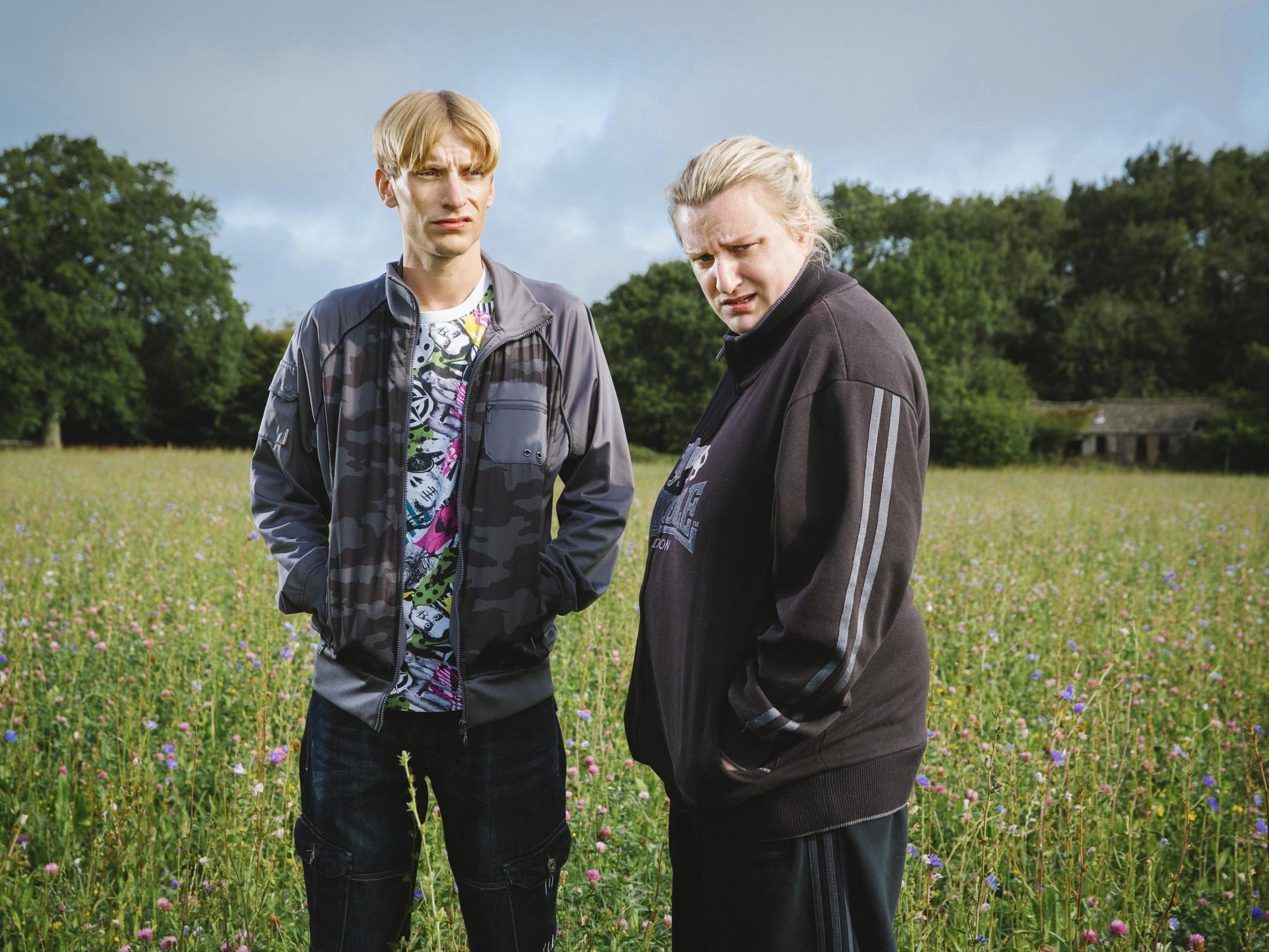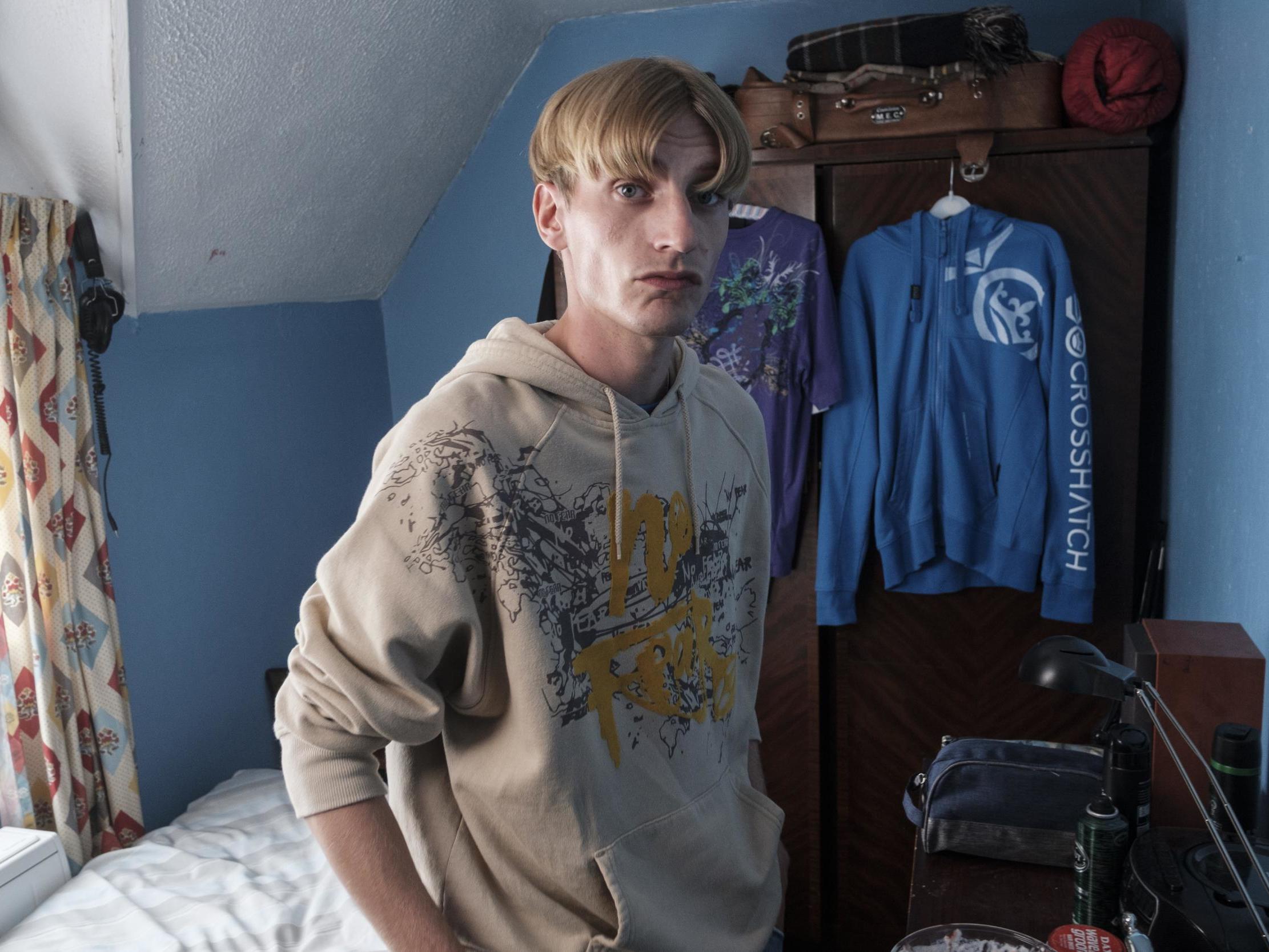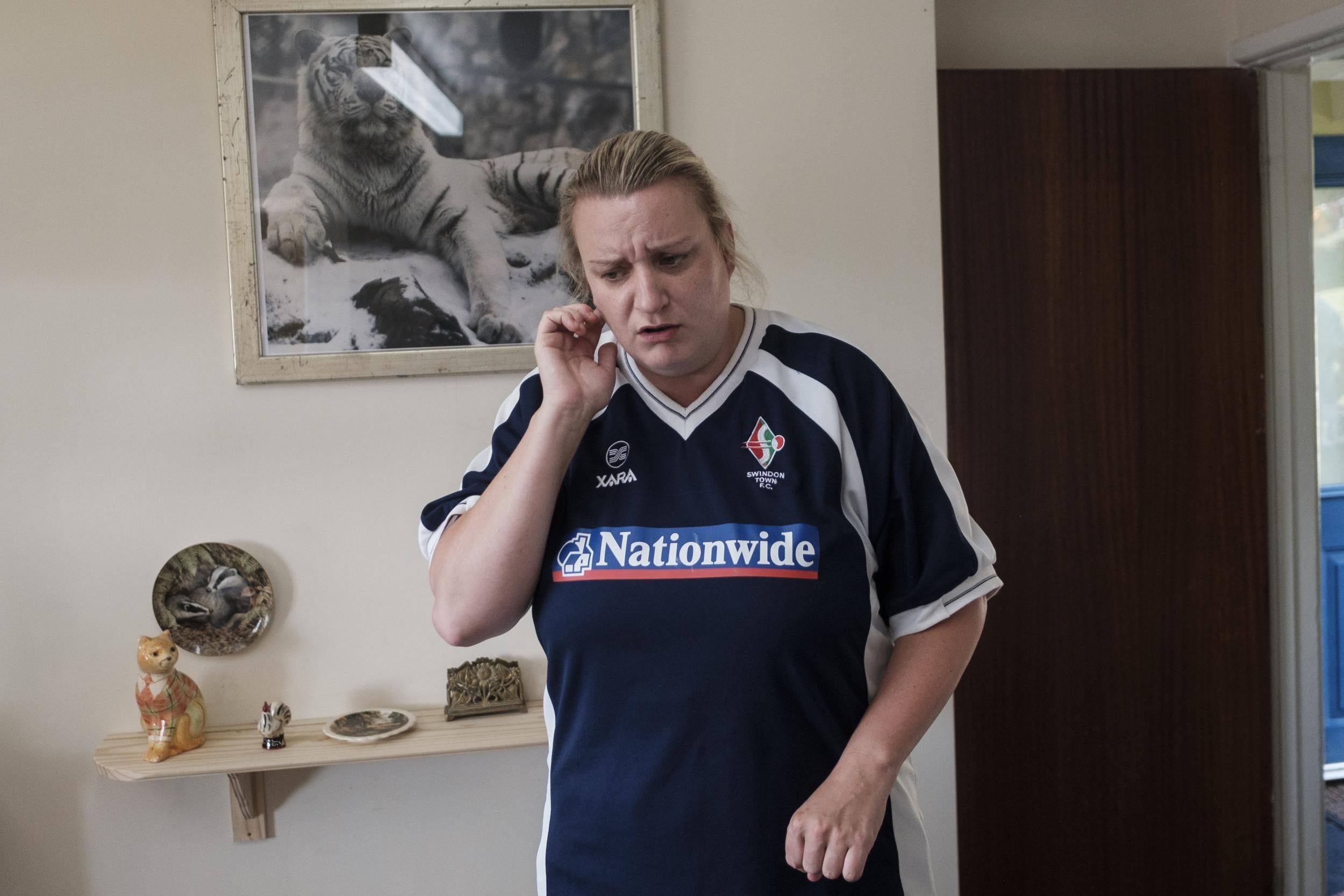Daisy May and Charlie Cooper: ‘We had nothing before This Country. It was humiliating... we couldn’t even afford McDonald’s’
The creators and stars of the BBC mockumentary talk to Ellie Harrison about their inspiration for Kerry and Kurtan, rural poverty, the trauma of Rada and losing their friend Michael Sleggs


Your support helps us to tell the story
From reproductive rights to climate change to Big Tech, The Independent is on the ground when the story is developing. Whether it's investigating the financials of Elon Musk's pro-Trump PAC or producing our latest documentary, 'The A Word', which shines a light on the American women fighting for reproductive rights, we know how important it is to parse out the facts from the messaging.
At such a critical moment in US history, we need reporters on the ground. Your donation allows us to keep sending journalists to speak to both sides of the story.
The Independent is trusted by Americans across the entire political spectrum. And unlike many other quality news outlets, we choose not to lock Americans out of our reporting and analysis with paywalls. We believe quality journalism should be available to everyone, paid for by those who can afford it.
Your support makes all the difference.I think this is the pub where Prince Harry got done for wearing that Nazi costume,” laughs Daisy May Cooper, as we drive down a country lane in her brother Charlie’s mud-speckled old Land Rover.
We’re heading to The Tunnel House Inn in Cirencester, an old favourite of theirs just a few miles from Northleach, the Cotswolds town where their Bafta-winning hit This Country is set.
The siblings are adored around here. Their mockumentary about the banality of living in rural England, which they write and star in as lovable knuckleheads Kerry and Kurtan, has a huge cult following. It’s even brought curtained hair back into fashion – or at least, worryingly close. At Swindon train station earlier, an employee bounded over to ask for a selfie. At the pub, the staff’s excitement is palpable. “Little Kev!” cries Daisy May, as the chef gives her a bear hug.
This Country’s authenticity is the key to its genius – as is its compassion. You root for Kerry and Kurtan because they feel real, and because despite their flaws and selfishness, there’s goodness underneath their Swindon Town FC tops. “Comedy starts becoming a fantasy when there’s no depth to the characters, like in Little Britain,” says 30-year-old Charlie, digging into a bowl of tagliatelle. “And when you’re laughing at them rather than with them.”
In the pilot episode, Kerry introduces her cousin Kurtan to the camera. He’s the only person she can share a box of Celebrations with, she says, because he loves Bounties. “I like the underdog,” says Kurtan, brimming with earnest pride. “The thing is, I don’t even like Bounties that much. I just feel sorry for them because they’re always left.”
As sweet as This Country can be, it also has bite. The BBC’s compliance unit wasn’t keen on one particular joke, when Kerry’s feckless father Martin Mucklowe (played by the Coopers’ real-life dad) gloats: “Every last Thursday of the month I used to play pool with Fred West, and I know he’s done a few things but he was a top-notch bloke.”
“It’s risky,” says Charlie, laughing, “but I’ve met about 50 Martin Mucklowes in the pub who have cornered me and boasted about their knobs or Fred West.” The pair believe that daring jokes can work – but only when they’re rooted in realism. “You’re a bad comedian if you think you have to say un-PC things to be funny,” says 33-year-old Daisy May, who’s opted for the steak sandwich.
When the Coopers staged a preview of series three in their hometown, 25,000 people applied for 400 tickets. But This Country isn’t just popular in Cirencester. It’s won three Baftas – the Swindon FC gown Daisy May wore on the red carpet made the Daily Mail’s worst dressed list – and there’s a, erm, striking statue of Kerry on display in the British Film Institute. But the siblings haven’t always been so fortunate. Growing up, the Cooper family were “financially so dysfunctional, but emotionally very tight”, says Daisy May.

When she and her brother were young, the family were evicted from their home after missing six months of rent. Things didn’t improve for a long time. As adults, after a miserable dalliance with higher education, the pair moved back home to work as night cleaners. “We were sharing a broken mattress at our parents’, all the springs had gone in the middle and we didn’t have any internet because we couldn’t afford it,” says Daisy May. “Every morning, we walked down to the library to check our emails and Facebooks. It was almost Dickensian, like Oliver Twist f***ing poverty.”

Watch Apple TV+ free for 7 days
New subscribers only. £8.99/mo. after free trial. Plan auto-renews until cancelled

Watch Apple TV+ free for 7 days
New subscribers only. £8.99/mo. after free trial. Plan auto-renews until cancelled
Her brother nods. “It always felt like it was only going to be temporary, but it ended up lasting about six years.”
Daisy May recalls struggling to pay the £9 train fare to London for auditions. “We had nothing,” she says. “The stress of it. It was so humiliating and you have no choices when you don’t have money. Your dignity is absolutely... you’ve got no self-respect. I went on a Tinder date with my now-husband for the first time and all I had was £5 in my wallet. Eventually he goes, ‘Are you gonna get your cobweb holder out?’ Isn’t that horrid? But he did pay in the end.”
The Coopers’ first-hand experience of deprivation is what makes This Country so affecting. In one episode, Kurtan makes a heart-wrenching speech about living in the Cotswolds with no prospects, and bumping into old friends who’ve long since abandoned the place. “I was embarrassed, mate,” goes the monologue. “I went home that night and bawled my eyes out because I know they’ve moved on and I haven’t and I’m stuck in this life going nowhere.”
“That actually happened to us,” Daisy May tells me. “That’s why we wrote it down. I actually started crying when we did that scene. We couldn’t even afford McDonald’s.”
“That total fear of being left behind, we felt like that for years,” says Charlie. “If you’re young and working class here, it’s so difficult to escape. There just aren’t any opportunities. You see so much about inner city poverty and inequality, but you don’t see anything rurally and it’s so f***ing difficult.”

Even when you do escape, it doesn’t always work out as you imagined. In her twenties, Daisy May went to study at the Royal Academy of Dramatic Art (Rada), which counts the privately educated Tom Hiddleston and Laurence Fox among its alumni. By contrast, Daisy May was so broke, she resorted to stealing food. “She would go to the kitchen in student accommodation and rifle through the cupboards and fridge,” says Charlie, scandalised by his sister’s gall. “One time, she came back with someone’s really expensive bottle of champagne that had a ribbon on it, tied in a bow. She opened it, had one sip, and just left it on the side in her room. Then she chucked it away the next morning.”
Daisy May laughs again, remembering the posters that were stuck up to warn against thieves operating in the building. “I told my friend, ‘Don’t be afraid, I’m the thief. I won’t take from you.’”
Beyond the financial struggles, Rada was a traumatic experience. “I think I’ve been too nice about it in the past,” she says, shaking her head, “but I don’t give a s*** anymore. I was terrified every day. I would do monologues and our tyrannical teacher would say, ‘That’s dreadful. You can’t act, why are you even on this course?’ It was such a headf***, and if you had a bad class, the rest of your peers would ostracise you. It was unbelievably stressful – 15-hour days where you were just told how s*** you were all the time and pushed to your absolute limit. It was toxic.”
Daisy May – who cropped up recently in Armando Iannucci’s delightful The Personal History of David Copperfield – is adamant that Rada is not the only way in for aspiring actors. “Young people need to be f***ing encouraged,” she says. “I don’t understand why that bullying has to carry on in this day and age. And lecturers taking their favourites to the pub? That’s f***ing nuts, that shouldn’t happen. I really would tell anybody to back the f*** away from that place.”
Charlie, meanwhile, had a terrible time at Exeter University, where he studied sports science. “I hated everyone there – hockey players, rugby players... I didn’t really make many friends, but the ones I did make were the biggest nerds.”
“On freshers’ night, he did pathetic things like put a traffic cone on his head,” says Daisy May, through tears of laughter, “and they thought that was so cool. ‘Wow, he’s the mad one.’ So tragic.”

Two years in, Charlie visited his sister in London and told her how miserable he was. She encouraged him to drop out. “You’re so impulsive,” he tells her now. “You do things you want to do and rarely do things you don’t. I always feel guilty about letting people down.” He is certainly the more angst-ridden of the two, choosing his words carefully, gnawing at his nails. Daisy May answers nearly every question first and fast.
“I left and I never went back,” Charlie continues. “Left all my stuff in my room at uni – it was the most liberating thing. F*** knows what they did with my stuff. Cutting ties like that is amazing.” Charlie slept on Daisy May’s floor for a year while she finished Rada, and then they returned home.
In between their shifts cleaning offices, they wrote. Having sent out early This Country scripts and made some YouTube tasters, they were originally signed by ITV and NBC, but the resulting pilot was “horrendous” and the show was dropped. In desperation, Daisy May emailed the BBC’s head of comedy commissioning, Shane Allen, telling him she would stand outside the headquarters until he let her in. That was in 2015. Two years later, This Country launched on BBC Three.
The Coopers wrote Kerry and Kurtan partly as extensions of themselves, and partly based on a particular pair of siblings they knew at school. “They were trouble makers in Cirencester,” says Charlie. “But there was severe vulnerability there.”
“That vulnerability was just so beautiful,” says Daisy May. “The girl we based Kerry on would go around punching people but then she’d do things like make these lovely little snowflake Christmas tree decorations. She was so proud of them. It made my heart sing.”
Do they know Kerry and Kurtan are based on them?
“They know,” says Daisy May, “because they’ve asked me and I’ve been pissed in a pub and gone, ‘Yeah, but please don’t beat me up because I’m still terrified of you.’”
There have been a few scrapped ideas over the years. This Country, much like the Cotswolds, is overwhelmingly white – but they considered including an immigration storyline. “There was one we wanted to write,” says Daisy May, “because our town was like Little House on the Prairie and there was one boy from Barbados who joined our primary school. Everyone wanted to be his friend. It was like, ‘Oh my god, you’re black.’ It’s terrible, but it was more positive prejudice than anything else.”
With that memory in mind, they were tempted to write an episode where Kerry and Kurtan were desperate to befriend an exciting new arrival – like in The Office when David Brent tries to impress a mixed-race colleague with his knowledge about black actors. “Really cringe,” says Charlie. They decided against it.
Cirencester is a Tory stronghold. Daisy May and Charlie, who both vote Labour, say class war was always more of an issue than xenophobia. “It’s weird because there aren’t many middle class people,” says Daisy May. “You’ve got the upper class and on the outskirts of the town there’s the council houses. There’s the agricultural college where the Prince Harrys go, and they have to have a different night at the local club otherwise they fight with the locals.”
The siblings mostly cast locals in This Country, many of whom are family and friends. They lost one of them last year. Michael Sleggs, who played oddball Slugs, died of heart failure just before they finished writing series three. The first episode pays tribute to his character in typical Cooper fashion: taking the piss while being deeply poignant.
“It was so hard,” says Daisy May. “Like, ‘Michael’s dead and now we’ve got a week to write him in.’ It was such a bizarre thing to have to write about your friend’s...” she starts to cry, pressing her fingers to her eyes. “I don’t know why it catches me every time, it’s just hitting us that he’s gone. We didn’t have time to grieve for him.”
So difficult was the loss of Sleggs that the pair don’t think they can write another season. “I wouldn’t want to do another one without him,” says Daisy May. “We really felt this massive void.”
They aren’t ruling out a special or a film, though, and there’s a US remake of This Country coming with The Greatest Showman writer Jenny Bicks adapting the script. “Jenny had exactly the same experience as us, but she grew up in Maine,” says Daisy May.
“The concept of two people living in a small rural town with not much hope and opportunity is universal,” adds Charlie. “They’re setting it in the midwest, Ohio, and it’s so much more remote than anywhere in England.”
Now, the Coopers are taking some time off to “get inspired again”. They’re both living in the Cotswolds, quite willingly, after spending years trying to escape. The irony of this is not lost on them.
“We’re suddenly at peace with where we live now,” says Daisy May with an incredulous laugh.
“It’s true,” says Charlie. “Doing the show let off a lot of steam about what we hated about this place, and then suddenly it’s out there and it’s like...” He looks around the pub. “‘Oh actually, I love it here.’”
BBC3’s This Country starts on Monday 17 February, available from 7pm on iPlayer and 10.35pm on BBC1
Join our commenting forum
Join thought-provoking conversations, follow other Independent readers and see their replies
Comments